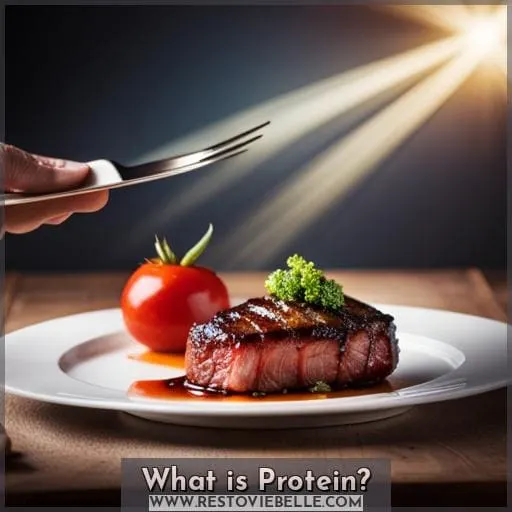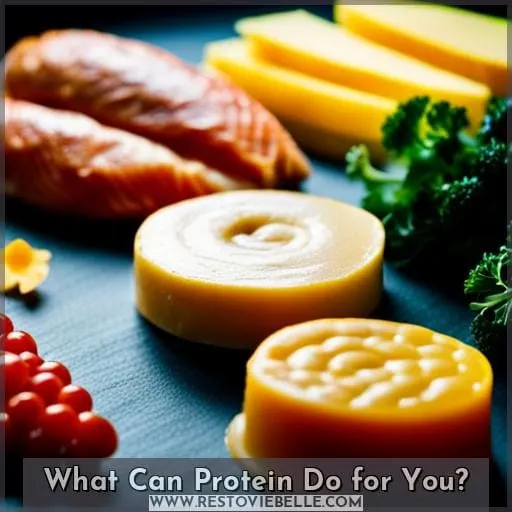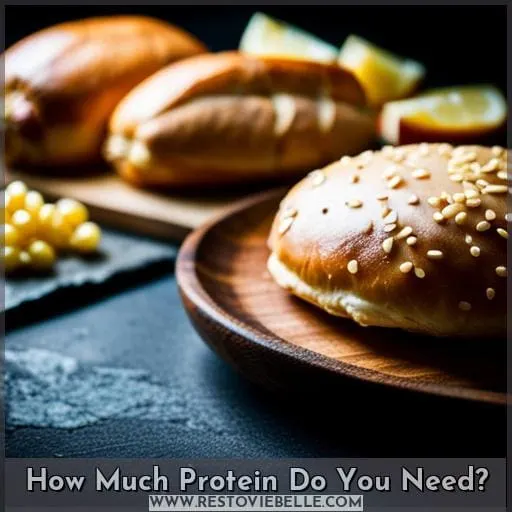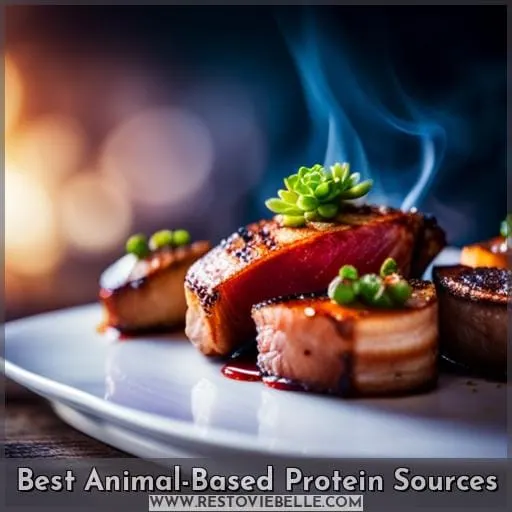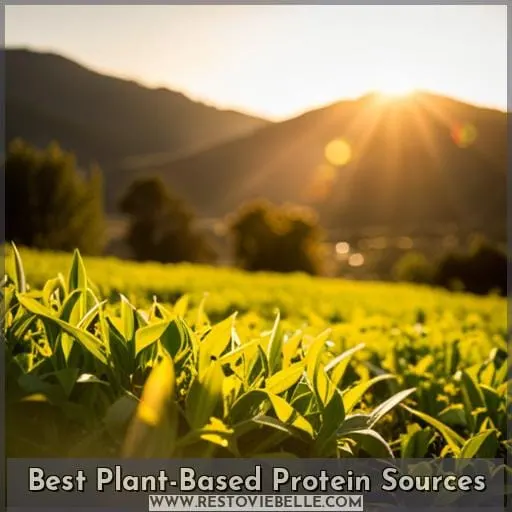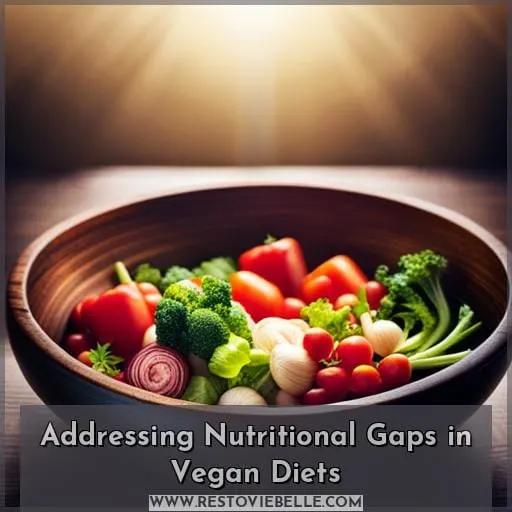This site is supported by our readers. We may earn a commission, at no cost to you, if you purchase through links.
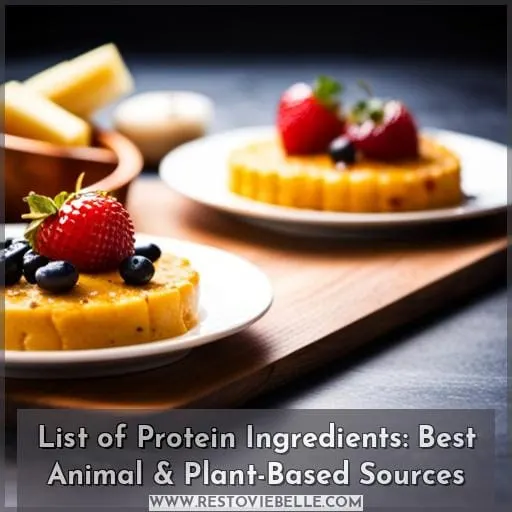 Are you looking for a comprehensive list of protein ingredients? With so many options available, it can be difficult to know which sources are best. Animal-based proteins and plant-based proteins offer different nutritional benefits and come with their own unique advantages.
Are you looking for a comprehensive list of protein ingredients? With so many options available, it can be difficult to know which sources are best. Animal-based proteins and plant-based proteins offer different nutritional benefits and come with their own unique advantages.
In this article, we’ll review the best animal and plant-based sources of protein as well as discuss considerations when creating a vegan diet that meets your nutrient needs.
Table Of Contents
Key Takeaways
- Animal-based protein sources include lean beef, chicken breast, salmon, and eggs.
- Plant-based protein sources include seitan, tempeh, quinoa, chia seeds, nuts and seeds, tofu, lentils, beans, and chickpeas.
- Protein is essential for muscle growth, hormones, and energy.
- Complete plant-based proteins can be found in seitan, tempeh, quinoa, chia seeds, and nuts and seeds.
What is Protein?
Protein is the secret ingredient to a healthy and strong body, like an engine running on premium fuel. It’s essential for bodily functions like muscle growth, hormone production, and energy storage.
Consuming adequate amounts of high-quality proteins every day is key to optimal health and wellbeing. However, many people struggle with sourcing quality ingredients or understanding their daily requirements, which vary depending on age and activity level.
The Australian Dietary Guidelines suggest that adults consume 0.36g of protein per pound of bodyweight each day as part of a balanced diet. This diet should include plant-based sources such as beans, lentils, nuts/seeds, and tofu, in addition to animal proteins like lean cuts of meat and fish low in fat and cholesterol levels.
Plant-based sources offer various benefits, including lower BMI, reduced cancer risk, pain relief from arthritis, cognitive health, and improved heart health due to lowering blood pressure and regulating blood sugar, among others.
On the other hand, vegan diets may need additional supplementing if not well planned, since certain nutrients might be missing from these restrictive diets (such as B12, iron, zinc, and omega 3s). It is also important to keep consumption of processed foods at a minimum to avoid nutrient deficiencies in the long run.
Finally, there are complete plant-based proteins such as seitan, wheat, tempeh, edamame, nutritional yeast, spelt, teff, hemp seeds, green peas, spirulina, amaranth, quinoa, Ezekiel bread, soy milk, oats, wild rice, chia seeds, nuts/seeds, mycoproteins, and some vegetables and fruits that provide a notable amount of protein as well.
What Can Protein Do for You?
By consuming the right types of proteins, you can enjoy a range of health benefits from improved muscle strength to reduced cancer risk. Protein is essential for energy production and helps build and maintain muscles.
In addition, it’s an important source of nutrients with vitamins, minerals, healthy fats, and fiber included in many protein-rich foods like eggs or dairy milk. For weight loss goals too, lean meats are great sources because they deliver protein without excessive calories or saturated fat intake that some other food options may have.
Plant proteins such as beans provide dietary fiber, which aids digestion, while nuts offer healthy fats along with their protein content – making them ideal snacks if eaten in moderation! A vegetarian diet can also meet your daily needs through nutritional yeast, seitan, tofu, tempeh, edamame, lentils, peas, sprouts, chia seeds, green vegetables, mushrooms, quinoa, amaranth, hemp, nut butters, pumpkin seed butter, oats, wild rice, mycoprotein, soy milk, Ezekiel bread, etcetera.
Eating a variety of these ingredients will ensure you get all the necessary amino acids needed for optimal health outcomes overall, whether vegan or not!
How Much Protein Do You Need?
Knowing how much protein your body needs can help you make the most of its benefits. On average, adults should aim for 0.36 grams per pound of body weight each day according to Australian Dietary Guidelines.
- Protein intake guidelines recommend adequate intake that is based on age, gender, and activity level.
- For athletes, a higher daily requirement may be necessary to reach performance goals or maintain muscle mass while reducing fat content.
- Meal planning with nutrient density in mind helps ensure that meals provide an optimal balance of proteins and other essential nutrients for overall health maintenance without overeating calories or fats from animal sources such as dairy products or red meat.
- Weight management also relies heavily on consuming enough protein to support a healthy metabolism and physical activity levels while avoiding excessive carbohydrates, which can easily lead to weight gain if not balanced properly with proteins found in foods like legumes & nuts, leafy greens & seaweed, etc.
The amount of dietary protein required varies depending primarily upon individual lifestyle factors. However, it’s important to remember that no single food contains all the essential amino acids needed by our bodies.
Best Animal-Based Protein Sources
Protein is an essential part of a balanced diet, and animal-based sources such as lean beef, chicken breast, salmon, and eggs can provide the body with all its necessary nutrition. These ingredients offer various benefits, including vitamins, minerals, and healthy fats, which help to promote muscle strength and weight loss.
Lean Beef
You can get a healthy dose of protein by adding lean beef to your diet. Lean beef is an excellent source of high-quality protein, along with iron, zinc, and B vitamins.
This nutrient ranking tool also shows that it contains more than 10 essential nutrients in significant amounts for the day’s requirements.
Sustainable beef production practices are also beneficial for maintaining a healthy environment and biodiversity.
Cooking tips include grilling or broiling steak on medium heat to retain moisture and prevent toughening; marinating before cooking helps too!
Eating lean cuts such as skirt steak may reduce fat intake while still providing the same amount of nutrients as other cuts like pork chops would, making them a great option if you’re looking for high-protein foods without all the added fat content.
Try this versatile ingredient today – its health benefits will surely make your meals even more delicious!
Chicken Breast
Savoring the flavor of chicken breast provides a protein-rich meal with B vitamins, zinc, and selenium. With numerous cooking options available, including grilling, baking, and roasting, this lean meat is versatile for many dishes.
Benefits include:
- Protein rotation: An important part of a high protein diet to ensure adequate nutrition over time.
- Lean Chicken Breast: Low in fat but high in essential nutrients.
- High Protein Meals: The USDA Food Data Central Repository lists nutritional value for all types of food.
- Alternatives: Can be used instead of red meat or other animal products to create balanced meals.
The benefits are clear—chicken breast should be included as part of any healthy diet plan!
Salmon
Discover the health benefits of salmon, a high-protein fish rich in omega-3 fatty acids and essential vitamins and minerals. Salmon is an excellent source of protein to help build muscle mass while providing essential amino acids for healthy body functions.
Omega-3 content aids in cognitive development, heart health maintenance, and inflammation reduction. Cooking techniques are varied; baking, steaming, or grilling offer flavor options with minimal added fat.
Eggs
Eggs are a power-packed protein source, packing in vitamins, minerals, and healthy fats. They’re a great source of nutrition for vegetarians and vegans looking to add more protein to their diets without relying on animal products.
Eggs are also an excellent substitution for high carb foods like pasta or potatoes when cooking up meals with lentil proteins or nutritional yeast.
Plus, the health benefits associated with eggs make them even more attractive. They boost immune system function and improve eye health due to their lutein content.
So don’t forget about eggs when you’re swapping out your plant-based proteins. They’ll give you all the nourishment while adding delicious flavor too!
Best Plant-Based Protein Sources
If you are looking for plant-based proteins to add to your diet, tofu and tempeh, lentils, beans, and chickpeas, nuts and seeds can be excellent sources. These foods provide a range of nutrients that not only help with muscle development but also support overall health in many other ways.
Tofu and Tempeh
Experience the nutritional benefits of tofu and tempeh, complete proteins that make great meat alternatives. Tofu and tempeh are rich in amino acids, minerals, vitamins, fiber, and antioxidants. Both offer a good source of plant-based protein for vegans or those looking to reduce their animal product intake.
With versatile recipes ranging from stir-fries to salads to sandwiches, using these ingredients can be delicious! Tofu is made by curdling soy milk with a coagulant, while tempeh uses fermented whole soybeans as its base ingredient, making it more nutrient-dense than tofu.
Try adding them into your diet today for all the amazing health benefits they provide!
Lentils
Lentils are a powerhouse of protein, fiber, and various health benefits. They make an excellent substitute for pasta or beans in soups and salads. Lentil nutrition is high in iron, zinc, magnesium, and B vitamins, as well as protein content per serving.
When cooking lentils, it’s important to note that they should be washed thoroughly before use due to potential arsenic found in wild rice varieties.
Lentil recipes can range from appetizers, such as hummus, to main dishes like veggie patties with savory spices added for flavor! Nutrients provided by these legumes not only support muscle growth but also reduce cholesterol levels and stabilize blood sugar levels too!
With endless possibilities of how you can incorporate them into your meals, try out some lentil cooking tips today!
Beans and Chickpeas
Beans and chickpeas are an excellent source of plant-based protein, offering a range of vitamins, minerals, fiber, and other beneficial nutrients. From delicious bean recipes to the nutritional benefits of chickpeas – there’s something for everyone.
Try cooking with beans in everything from salads to soups or use them as a meat substitute in vegan dishes. Hemp seeds and amaranth are great sources too; quinoa is also high in protein while soy milk offers fortified nutrition.
Nuts and Seeds
Nuts and seeds such as almonds, walnuts, sunflower seeds, and pumpkin are an excellent source of protein for those looking to add more plant-based ingredients into their diet. Packed with fiber and healthy fats, they can help you feel fuller longer while providing vitamins and minerals.
Addressing Nutritional Gaps in Vegan Diets
It’s important to be aware of the potential nutritional gaps in vegan diets that can lead to deficiencies. Common nutrient deficiencies for vegans include B12, iodine, iron, calcium, and zinc. To maximize absorption of nutrients on a vegan diet, it is recommended to sprout, ferment, or cook with cast-iron cookware where possible, while supplements and fortified foods can help fill any remaining gaps.
Common Nutrient Deficiencies
It’s important to be aware of potential nutrient deficiencies in vegan diets, especially since some plant-based protein sources may not contain all essential amino acids. Iron deficiency is the most common problem as many vegan foods are low in iron and absorption can be hindered by other dietary components.
Vitamin B12 deficiency is also a concern due to limited animal products available for vegans. Other deficiencies include iodine, calcium, zinc, and omega-3s which need careful consideration when selecting plant proteins or using a nutrient ratio tool for muscle maintenance.
Cottage cheese protein can help you build muscle, but food choices should focus on whole grains and legumes as well as fortified products like soy milk or nutritional yeast for complete nutrition intake without any gaps.
Enhancing Nutrient Absorption
To get the most out of your vegan diet, consider enhancing nutrient absorption through sprouting, fermenting, and using cast-iron cookware – a simple switch that can increase iron content by up to four times!
Sprouted legumes are easier to digest and contain higher levels of vitamins. Fermenting foods such as tempeh or kimchi helps preserve nutrients while introducing beneficial bacteria into the gut.
Cast iron skillet cooking increases the availability of minerals like magnesium from plant-based sources like green peas or wild rice. Adding firm tofu with grated parmesan cheese is another way to boost protein intake without relying solely on animal products.
Mycoprotein is an excellent meat substitute for those concerned about vegan nutrition risks in general.
Supplements and Fortified Foods
You can supplement your vegan diet with fortified foods and nutritionally-packed supplements to get the most out of your plant-based meals. Protein powders, such as vegan protein powder made from vegetables like pea and rice, are an excellent source of additional nutrition.
Fortified cereals high in protein are also a great option for breakfast or snacks throughout the day.
Alternatively, consider adding dietary fortification trends like tuna fish or Ezekiel bread to pasta dishes for added B12 vitamins that may be lacking on a vegan diet plan.
Nutrient-rich supplements and plant-based vitamin sources can help fill any nutritional gaps you might have when following a vegan lifestyle!
Conclusion
Protein is essential for a healthy diet, and with so many different sources to choose from, it’s easy to get the protein you need every day. Whether you’re vegan or omnivorous, there are plenty of plant and animal-based protein ingredients to choose from.
Some examples of animal-based protein ingredients include lean beef, chicken breast, and salmon. These options are great for those who consume meat and are looking for lean sources of protein. Eggs are another excellent source of protein, and they can be prepared in various ways to add variety to your diet.
For those following a plant-based diet, tofu and tempeh are popular protein options. These soy-based products are versatile and can be used in a variety of dishes. Lentils, beans, and chickpeas are also fantastic sources of plant-based protein.
They are not only high in protein but also packed with fiber and other essential nutrients.
In addition to animal and plant-based protein sources, nuts and seeds are excellent options. They are not only rich in protein but also provide healthy fats and other essential nutrients. Adding a handful of nuts or seeds to your meals or snacks can boost your protein intake.
To ensure you’re getting all the nutrients you need, it’s important to mix up your protein sources. Additionally, pay attention to any nutritional gaps in your diet, such as B12, iodine, iron, calcium, zinc, and omega-3s.
With this list of protein ingredients, you can now make sure you’re getting all the protein you need to stay strong, healthy, and full of energy!

